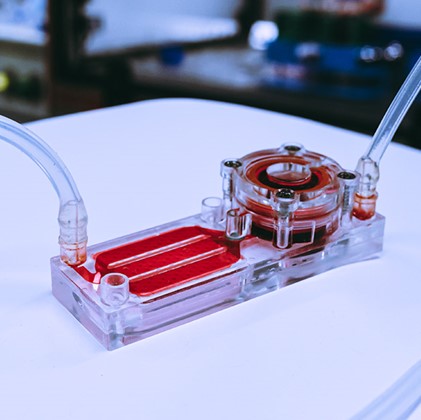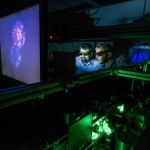 IMAGE COPYRIGHT Norman Ertych
IMAGE COPYRIGHT Norman Ertych Fish-on-a-chip
Fish are used in toxicity tests for chemical regulation and in environmental monitoring programmes.
The use of animals poses an ethical challenge for society. IN addition, these regulatory tests are extremely labour intensive and costly.
Our research aims to develop novel technologies to replace fish in these studies. To achieve this, we have developed organ-on-chip devices that combines fish gill cell cultures with cells from other organs to produce an "artificial fish". We hope that data from this research can help identify the impact of chemical pollution in the aquatic environment that can help policy makers and regulators.
The use of animals poses an ethical challenge for society. IN addition, these regulatory tests are extremely labour intensive and costly.
Our research aims to develop novel technologies to replace fish in these studies. To achieve this, we have developed organ-on-chip devices that combines fish gill cell cultures with cells from other organs to produce an "artificial fish". We hope that data from this research can help identify the impact of chemical pollution in the aquatic environment that can help policy makers and regulators.
You may also like

A better world with lasers
Lasers are cool - but can they save the world? Come and find out! *Become a 'coral detective' in our interactive 'coral reef' and see how lasers are helping us understand the im ...Read More
Highfield Campus

TRI-SoMe Chicken: Feeding your Chicken
What do you need to 'build' a chicken to eat as meat? What has making chicken for meat got to do with resilience - of the UK food system and of individual consumers (human and avia ...Read More
Highfield Campus
 - v2.jpg)
